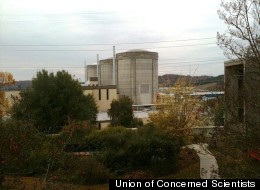 Ten years after the United States invaded and occupied Iraq, the country’s oil industry is poised to boom and make the troubled nation the No.2 oil exporter in the world. But the nation that’s moving to take advantage of Iraq’s riches isn’t the United States. It’s China.
Ten years after the United States invaded and occupied Iraq, the country’s oil industry is poised to boom and make the troubled nation the No.2 oil exporter in the world. But the nation that’s moving to take advantage of Iraq’s riches isn’t the United States. It’s China.
America, with its own homegrown energy bonanza, isn’t going after the petroleum that lies beneath Iraq’s sands nearly as aggressively as is China, a country hungry to fuel its rise as an economic power.
Iraqi oil: Once seen as U.S. boon, now it’s mostly China’s
Oil and electricity: A compare-and-contrast tale of 2 regulators
 An obscure federal regulator of electricity markets has emerged as a tough cop on the beat, taking on Wall Street banks and big energy firms alike for market manipulation. That aggressive approach stands out when it’s compared with that of the regulator in charge of looking for manipulation in the oil and gasoline markets.
An obscure federal regulator of electricity markets has emerged as a tough cop on the beat, taking on Wall Street banks and big energy firms alike for market manipulation. That aggressive approach stands out when it’s compared with that of the regulator in charge of looking for manipulation in the oil and gasoline markets.
Whether manipulation accounts for volatile oil and gasoline prices in recent years is a hotly debated topic since prices began their steep climb in late 2005. Last year’s West Coast price spikes amid ample supplies added to the urgency in determining whether excessive financial speculation is driving price volatility.
Cheney-Linked Company to Drill in Occupied Golan Heights
The Israeli government awarded a local subsidiary of U.S.-based Genie Energy the rights to explore for oil and natural gas in about 150 square miles of the southern section of the Golan Heights. The United Nations last year extended the mandate for the region's U.N. Disengagement Observer Force mission, one of the oldest peacekeeping missions, for another six months.
U.N. Secretary-General Ban Ki-moon said keeping Blue Helmets stationed in the area was essential to peace given the potential for conflict spilling out of the Syrian civil war. Genie Energy said there may be a significant amount of oil and natural gas in the license area. When Israel set its sights on offshore natural gas, Hezbollah warned that Israel shouldn't encroach on Lebanese territory.
Shell Oil drilling vessel is adrift in Gulf of Alaska
 An unmanned mobile oil drilling rig owned by Royal Dutch Shell is adrift -- again -- south of Kodiak Island after it lost towlines Sunday afternoon from two vessels trying to hold it in place against what have been pummeling winds and high seas, according to incident management leaders.
An unmanned mobile oil drilling rig owned by Royal Dutch Shell is adrift -- again -- south of Kodiak Island after it lost towlines Sunday afternoon from two vessels trying to hold it in place against what have been pummeling winds and high seas, according to incident management leaders.
A team of 250 people from the Coast Guard, the state of Alaska, Shell, and one of its contractors was hunkered down Sunday, mainly in Midtown Anchorage's Frontier Building, trying to resolve the ongoing crisis with Shell's drilling rig, the Kulluk.
Coal to equal oil as world's top energy source within 10 years
 The International Energy Agency (IEA) says that coal will catch up with oil as the world's leading energy source by 2022. In a report, the Agency says that increased demand from India and China are fuelling the push.
The International Energy Agency (IEA) says that coal will catch up with oil as the world's leading energy source by 2022. In a report, the Agency says that increased demand from India and China are fuelling the push.
Natural gas offers the best hope of reducing carbon emissions in the short term the report concludes. It comes as the European Union acknowledged that it has been unable to fund a single project to capture and store CO2.
Solar panel companies in federal probe
Three U.S. solar panel firms are being investigated to determine if they inflated costs to get government payments, The Washington Post reported Friday.
The Treasury Department's office of inspector general has subpoenaed the financial records of SolarCity, SunRun and Sungevity to determine if they qualified for more than $500 million in federal grants and tax credits they received for performing work, sources familiar with the probe told the Post.
Nuclear Power Whistleblowers Charge Federal Regulators With Favoring Secrecy Over Safety
 Richard H. Perkins and Larry Criscione are precise and formal men with more than 20 years of combined government and military service. Perkins held posts at the Department of Energy and the National Nuclear Security Administration before joining the Nuclear Regulatory Commission's Division of Risk Analysis in 2008. Criscione landed at the agency a year later, after five years aboard the USS Georgia as a submarine warfare officer.
Richard H. Perkins and Larry Criscione are precise and formal men with more than 20 years of combined government and military service. Perkins held posts at the Department of Energy and the National Nuclear Security Administration before joining the Nuclear Regulatory Commission's Division of Risk Analysis in 2008. Criscione landed at the agency a year later, after five years aboard the USS Georgia as a submarine warfare officer.
Now both men are also reluctant whistleblowers, stepping out publicly to accuse the NRC of being both disconcertingly sluggish and inappropriately secretive about severe -- and in one case, potentially catastrophic -- flood risks at nuclear plants that sit downstream from large dams.
More Articles...
Page 6 of 43

 Energy Glance
Energy Glance






























